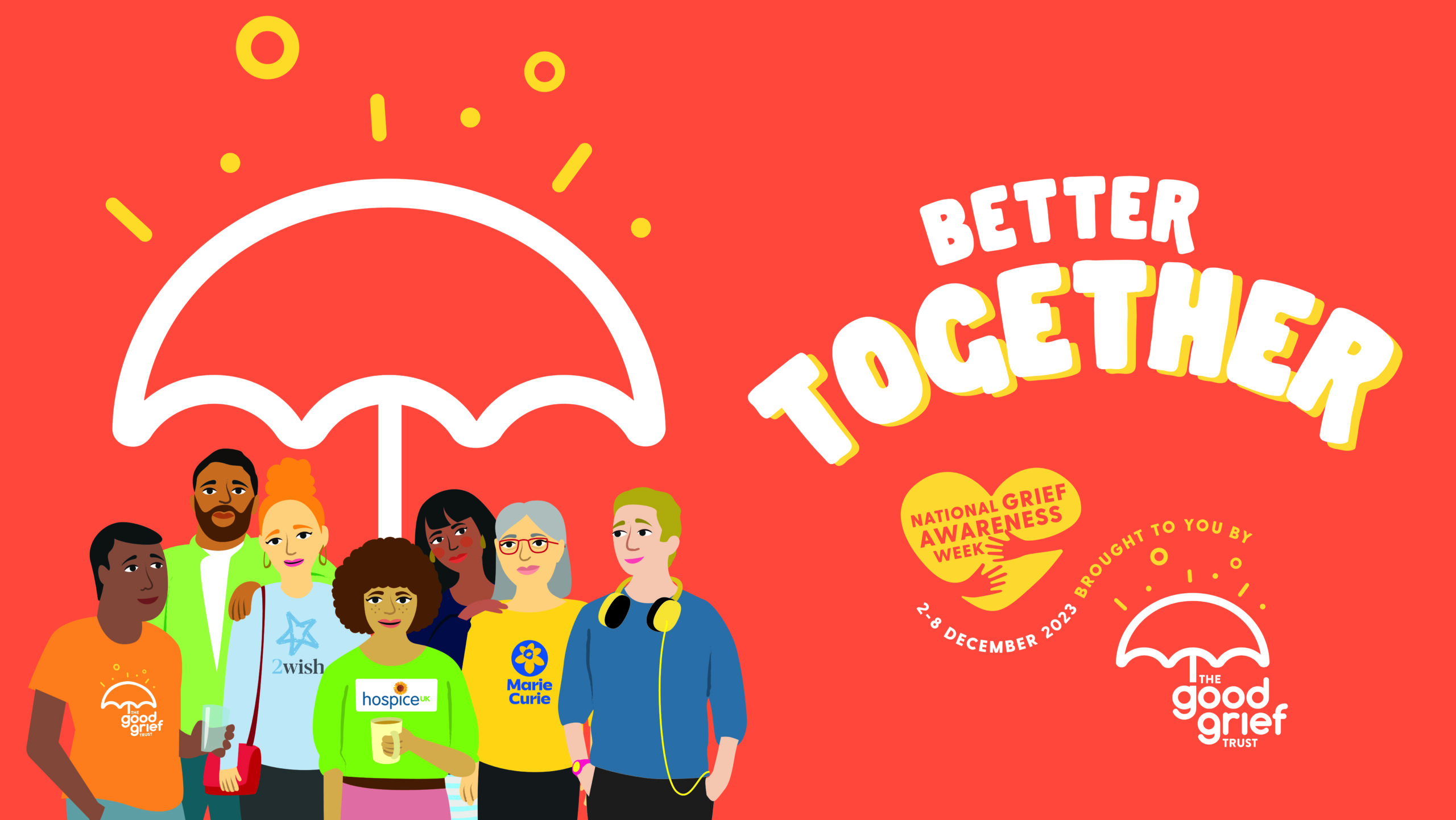
Luna Supports Grief Awareness Week
During National Grief Awareness Week 2023, we’re reflecting on why suicide bereavement is so different to other types of loss, particularly for children and young people left behind after the death of a parent or primary carer by suicide.
Our founder and CEO Anna Wardley considers some of this week’s themes and how they relate to children impacted by parental suicide:
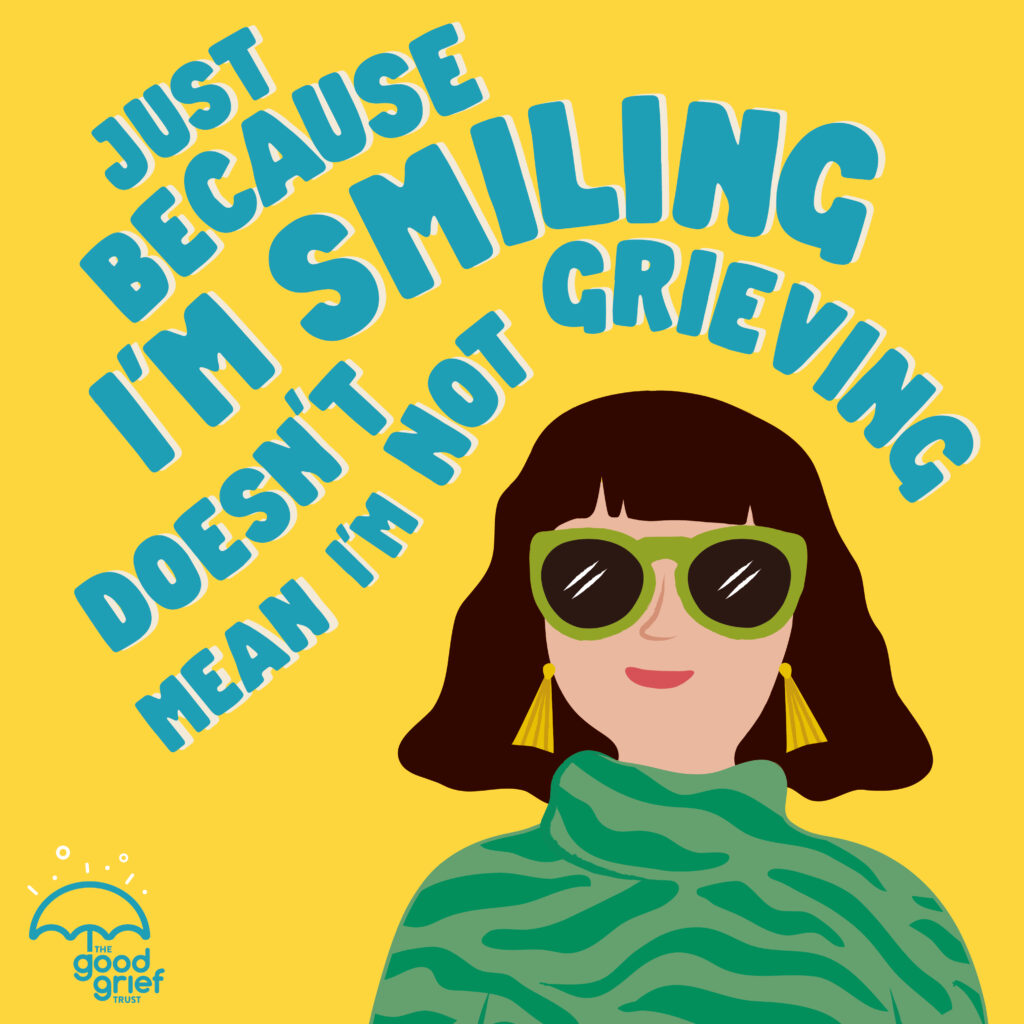
1. Just because I’m smiling doesn’t mean I’m not grieving.
After a parent dies by suicide, it’s common for children and young people to mask their own grief to spare their surviving caregiver pain and distress. You might hear a child say things that give the impression they haven’t been affected by what’s happened. It’s important that we don’t take these comments at face value.
On a personal note, when my mum told me that my dad had ended his own life, my first response was to say: ‘Don’t worry mum, I’ll get free school dinners now.’ This didn’t mean I wasn’t affected by what had happened, I was. I was just trying to make things better for my mum, who was deeply traumatised. I now know this type of response isn’t unusual and I’ve heard many similar accounts. It’s so important to look beyond responses that seem to minimise what has happened.
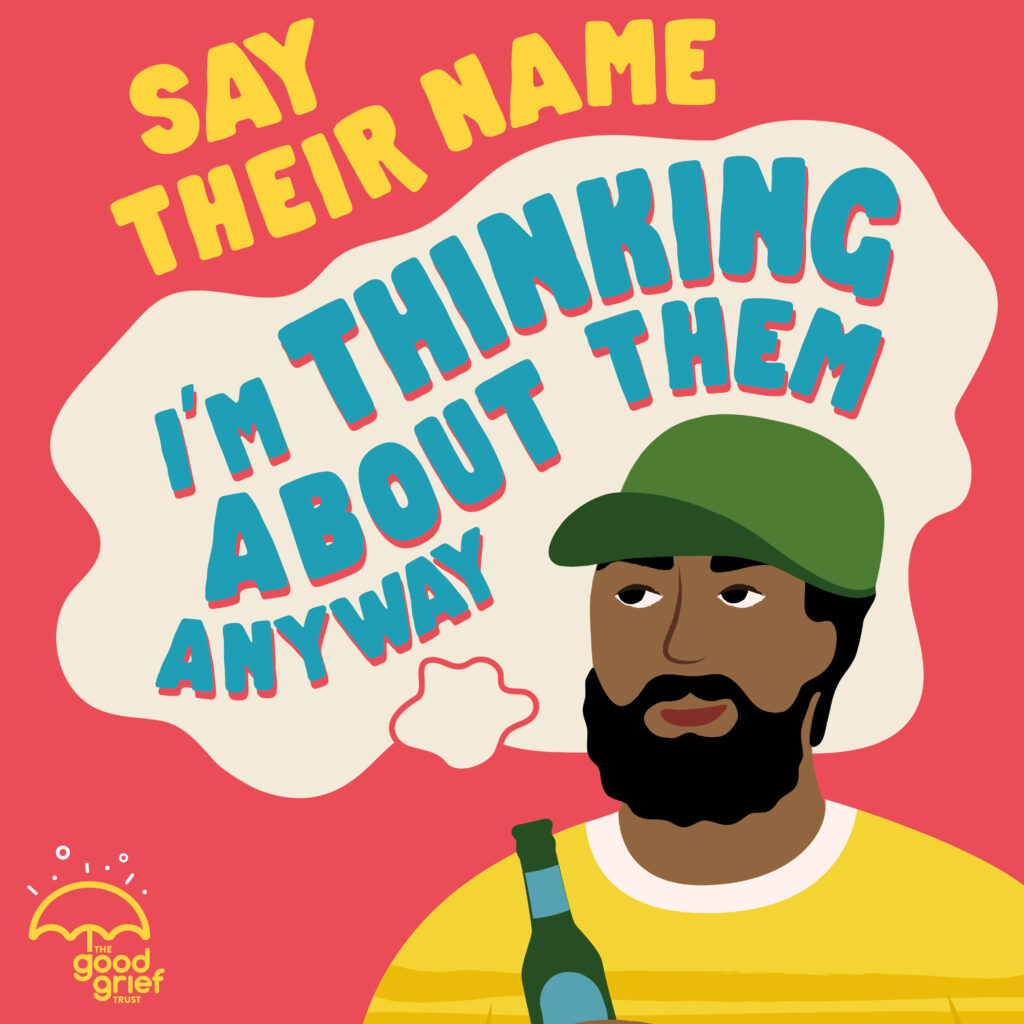
2. Say their name – I’m thinking about them anyway.
When a child’s parent takes their own life, many of us struggle to find the words to comfort and support them. But saying nothing at all can be deeply damaging.
It’s important for children impacted by parental suicide to be able to express their complicated grief and talk about the person they’ve lost without judgment.
A common misconception is that it will re-traumatise a child to talk about their parent when they’ve died by suicide. But even if they had a complex relationship with the person who ended their own life, or had little or no contact, children need a safe space to be able to talk about what happened and the confusing emotions they can experience including guilt, shame, relief and a sense of abandonment.
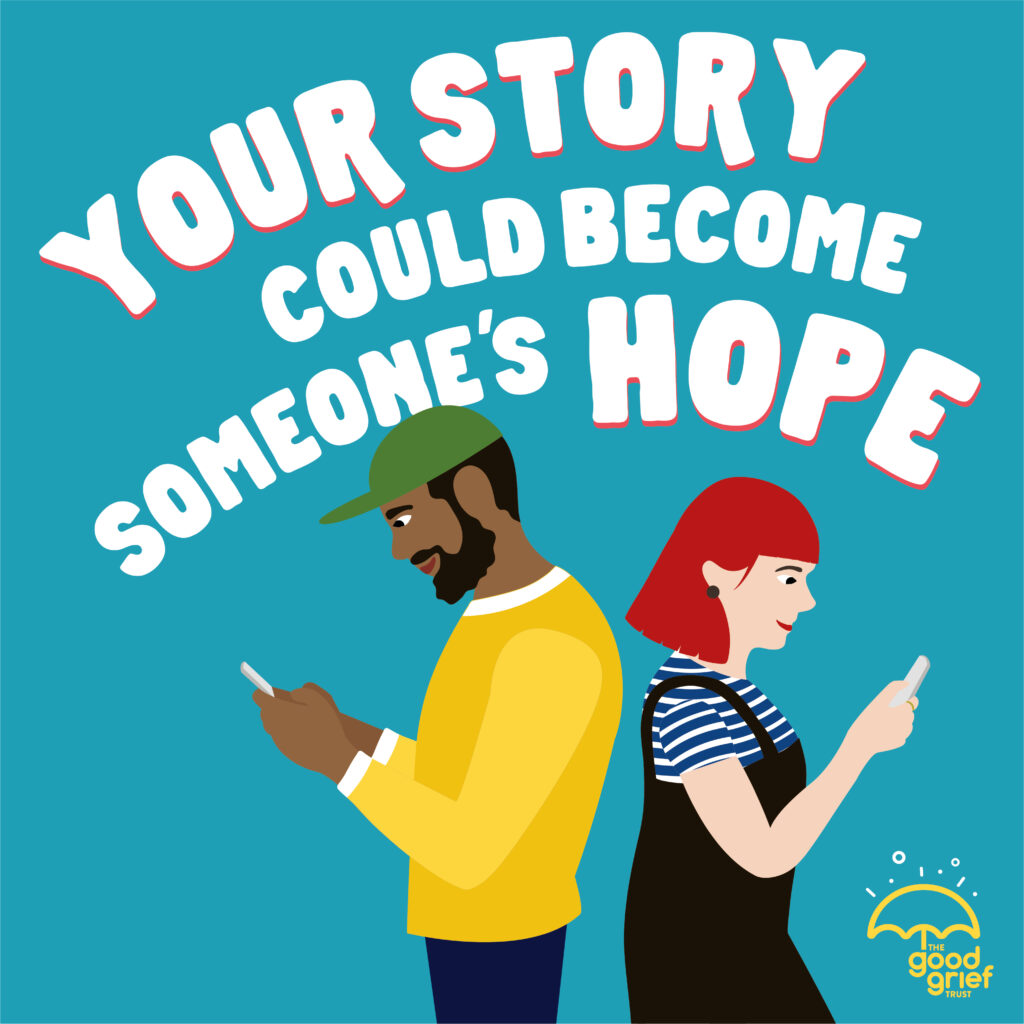
3. Your story could become someone’s hope.
At Luna, we steadfastly believe in the power of sharing our stories to create meaningful and lasting change for others. Through our Luna Lived Experience Network, people who experienced the loss of a parent by suicide in childhood are using their own direct experience to influence how others are supported after the same type of loss.
For many of them, the lack of support at the time led to long term mental health challenges. We are working together to create systemic change so that others impacted by parental suicide are able to access the support they need. They are the voices I needed to hear when I lost my dad to suicide aged 9, when I felt like I was the only person whose dad had ever killed himself. I needed to know that I wasn’t alone, that others had survived, and even thrived, after that type of loss. Hearing how others have navigated their grief in recent years has been like a balm for my soul, and we’re on a mission to share our stories far and wide. Get in touch if you have a personal account you’d like to share by joining our Luna Lived Experience Network.
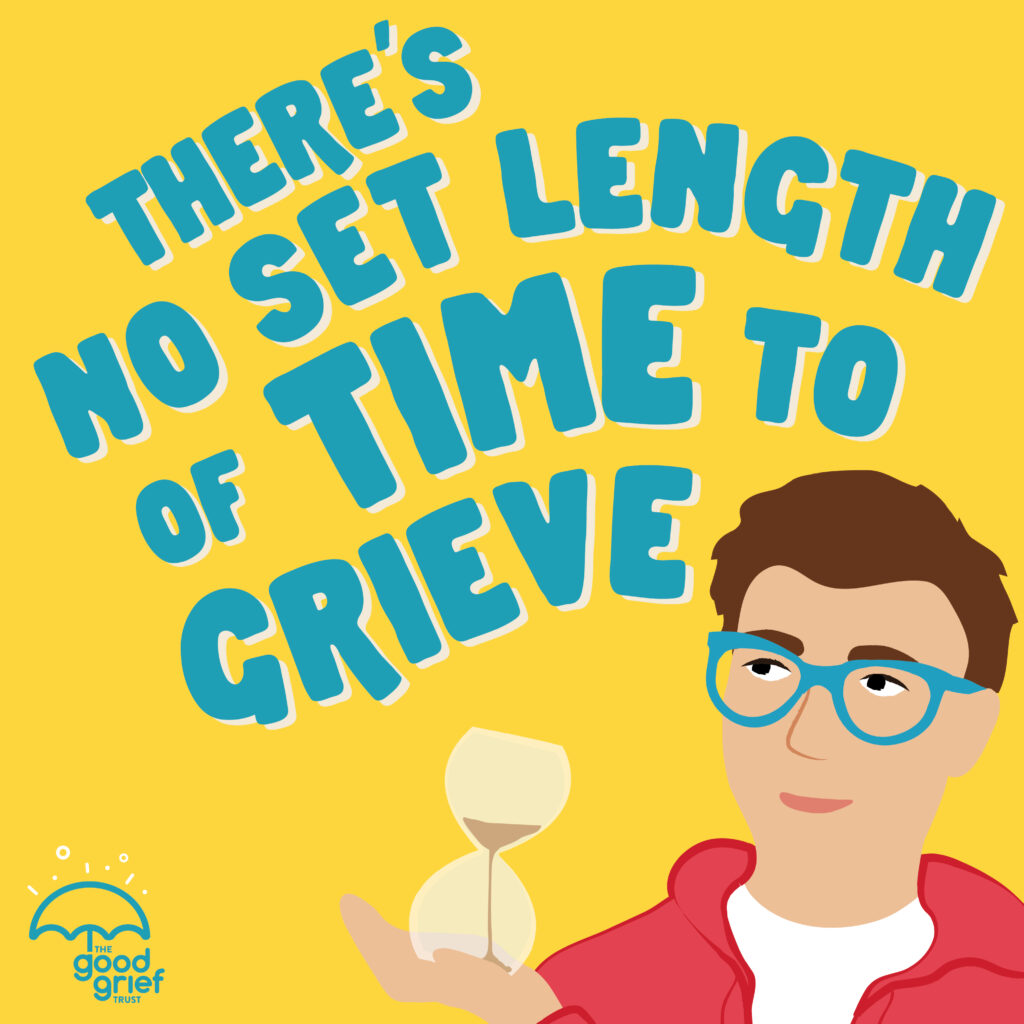
4. There’s no set time for grieving.
For children and young people who experience the death of a parent or primary carer by suicide, it’s a loss that can have a profound impact and last a lifetime. As a child grows up, their understanding of what happened will develop and change. They will have more questions about what happened and why their parent ended their own life.
Members of our Lived Experience Network share how the loss of a parent to suicide has had far-reaching impact on their own mental health, ability to form trusting relationships and their sense of self-worth. For some it led to serious bullying, which has left deep psychological scars.
After a parent dies by suicide, we shouldn’t put time limits on the grief of those left behind. We shouldn’t expect them to ‘get over it’ by a certain point. It’s a loss that will create an imprint, carried throughout their life. The greater the compassionate space we can provide for their complicated grief in the long term, the more potential we create for healing and personal growth, and we pave the way for others to learn from their experience.
So as National Grief Awareness Week 2023 draws to a close, let’s not overlook children and young people grieving the death of a parent by suicide, whether that was days ago, years ago, or as in my case, decades ago. The festive period can be a particularly difficult time for families that have experienced this type of loss, so let’s do all we can to ensure they get the support they need.
Upcoming training.
In January we’re running a series of suicide bereavement training sessions for people who work with children and young people, and a webinar to support the adoption of our suicide bereavement policy template in schools and colleges. DM to sign up, or email: admin@teamluna.org
You can support Luna’s work by becoming a regular donor.
By donating £5, £10 or £20 a month, you will help to accelerate our mission to improve support for children and young people after a parent dies by suicide. Donate here: https://donate.stripe.com/aEU147bbwbroalO000

